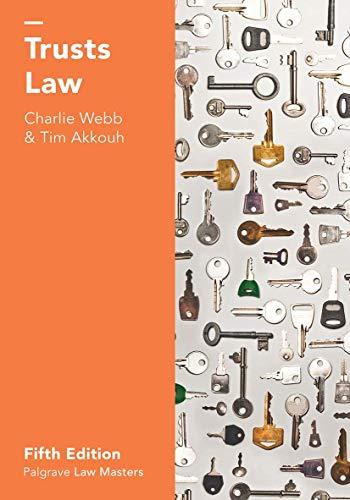Question
You are the CEO of Cherry Hill Hospital, a 173-bed, 501(c)(3) not-for-profit hospital located in Johnson City, a midsized city in the state of Ehrewhon.
You are the CEO of Cherry Hill Hospital, a 173-bed, 501(c)(3) not-for-profit hospital located in Johnson City, a midsized city in the state of Ehrewhon. The state of Ehrewohn follows the laws of the United States and the state of Kentucky. Cherry Hill was established in the early twentieth century. The articles of incorporation state that the purpose of the corporation is to provide quality health care to the residents of Johnson City. The current hospital mission is to promote community health and provide the highest quality health care close to home.
The hospital has finished its community health needs assessment and determined that the health concern in the community is the growth of substance abuse, particularly opioid addiction.
Half the members of the Board are optimists. They believe the hospital must grow and expand its vision to survive and that becoming a regional center for the treatment of addiction will not only respond to a pressing community need that is consistent with hospital's mission but will also pave the way for a more secure financial future. These Board members would like to take a "first step" by investing in an inpatient addiction treatment unit within the hospital. The governor of Ehrewohn, who is from Johnson City, has indicated that he will seek funding from the legislature to support the effort. The Board would eventually like to establish a regional outpatient addiction treatment center.
There are at least six addiction medicine physicians practicing in Johnson City and the surrounding counties. Four of the physicians practice as Johnson City Addiction Medicine, PLLC, a physician owned group practice (The Practice). The wife of the Chair of the Board manages The Practice. The Practice has a national reputation and is well respected in the Community.
You have approached The Practice to see if the group would be able to help develop and run the hospital inpatient addiction unit. The Practice is very interested but has indicated that they would want the exclusive right to provide addiction treatment in the inpatient unit for at least three years, a share of any value based payment the hospital received for successful performance outcomes for the patients admitted to the unit, payment for the upfront cost of modifying their EHR system to be compatible with the hospital system, and office space within the hospital to treat other patients in the practice.
The practice is also interested in partnering with the hospital in a joint venture to establish a comprehensive outpatient addiction treatment center. They have proposed that the site of the old hospital nursing school, which is currently unoccupied, would be an ideal location for the center. Any groundbreaking for the outpatient facility could not take place for five years. In the meantime, a local for-profit fitness program has indicated an interest in leasing the nursing school building on a year-to-year lease. Free transportation to the Center, once built, would be provided to patients by Cherry Hill in the Cherry Hill Van which would prominently display the Cherry Hill Logo with the name of the hospital and the statement "We Care".
While one half of the Board is committed to expanding the hospital's role in treating addiction and remaining a hospital strongly attached to Johnson City, the other half of the Board believes that Cherry Hill is already experiencing financial issues and may eventually need to shut its doors. They are very interested in exploring the opportunity for a merger with the large Regional Catholic Hospital system in the next county. The Regional Hospital does not offer abortions or sex reassignment surgery. There is a demand for these procedures in Johnson City and the Community hospital has tried to be inclusive and responsive to meet the demand.
On another note, a routine audit of the hospital has indicated that several charges that were billed to Medicare for services were not performed. The Board is concerned and has asked for your advice in handling this issue.
You have scheduled a meeting with the hospital attorney to discuss the legal concerns referenced here. You are specifically concerned with the attorney's opinion regarding legal issues related to the conditions The Practice has proposed for providing in patient addiction services in the hospital, the idea of forming a joint venture with The Practice to establish an outpatient facility on the site of the old nursing school, the short-term lease of the unoccupied nursing school to the local for-profit fitness center, the merger with the Regional Hospital, and the legality of providing free transportation to patients using the Cherry Hill Van with the Cherry Hill logo. You are also concerned with the influence of the CEO's wife on any action the Board may take. Additionally, you will discuss with the attorney how to handle the audit results and how to prevent similar situations.
What do you see as the legal problem with the audit?
From a legal, ethical and operational perspective, how would you propose handling the current situation?
How would you prevent a similar situation from recurring?
Step by Step Solution
There are 3 Steps involved in it
Step: 1

Get Instant Access to Expert-Tailored Solutions
See step-by-step solutions with expert insights and AI powered tools for academic success
Step: 2

Step: 3

Ace Your Homework with AI
Get the answers you need in no time with our AI-driven, step-by-step assistance
Get Started


